Close-up of a 4-arm robot assisting surgeons in tumor surgery at Binh Dan Hospital
Outside the robotic operating room at Binh Dan Hospital, a patient lay on a bed, waiting for his turn for surgery, his haggard face filled with anxiety.
Two months ago, he accidentally discovered that he had early stage prostate cancer during a medical examination in his hometown of Bac Lieu . At Binh Dan Hospital, he was advised to have the tumor removed to treat the disease.
After a while of waiting, he was finally pushed into the operating room. Here, the man was gently sedated and anesthetized. After that, the doctors quickly set up 4 trocar holes on the patient's body to insert 4 robotic arms. Each arm was equipped with a tool such as a camera, clamps, etc. to help the doctor perform the surgery smoothly.
Across the room, Dr. Nguyen Te Kha, Head of the Department of Urological Oncology Surgery, Binh Dan Hospital, took the opportunity to review the patient's pre-operative X-rays.
"The patient is a 69-year-old male, diagnosed with an early stage prostate tumor, with no lymph nodes or metastases, and in good health. We indicated radical prostatectomy, preserving the erectile nerve using a robot to completely treat the patient and provide the best quality of life for the future," said Dr. Kha.
Robotic surgery for adults was first performed in Vietnam at Binh Dan Hospital in 2016. As a pioneer in performing robotic surgery in Vietnam, Dr. Kha has come a long way to be recognized as a “super surgeon”. This is a title given by the Da Vinci robot system to doctors who perform more than 30 hours of surgery per week. In addition, he is also the person with the most hours of robotic surgery in Southeast Asia.
In 1999, Dr. Kha, then a young and enthusiastic physician, went to France to do his residency in urology at Bichat Hospital, District 18, Paris.
During his studies, he happened to learn about the surgical robot system at Henri Mondor Hospital - one of the first medical facilities in the world to apply this technology.
Led by French professor Abou El Fettouh, a leading expert on surgical robots, he was fascinated by the revolutionary possibilities of this technology: flexible robotic arms, magnified 3D images and precision that surpasses traditional surgery.
“I dreamed of studying, even if it was just to observe in the operating room. However, that dream was crushed when the hospital announced that the internship was full until 2005, while my visa only allowed me to stay until the end of 2000,” he recalled.
In 2000, Dr. Kha returned to work at Binh Dan Hospital, carrying with him the dream of robotic surgery. Many times he wondered if he would have the opportunity to touch that technology, when in the world , especially in the US, surgical robots have developed strongly, while Vietnam is still far behind those advances.
It was not until 2016 that the dream was rekindled thanks to the determination of Associate Professor, Dr. Tran Vinh Hung, Director of Binh Dan Hospital. From the stimulus loan from Ho Chi Minh City, the hospital brought in the first surgical robot for adults in Vietnam worth tens of billions of VND.
In 2019, Dr. Kha was sent to Korea to learn robotic surgery for just 4 days. During that short period, he used every hour to observe, take notes, and learn from the experiences of his international colleagues.
At the end of 2019, he performed his first robotic surgery. Since then, the number of surgeries has increased year by year. As of August 2025, Dr. Kha has performed a total of 686 surgeries, becoming the person with the most robotic surgeries in Southeast Asia.
In 2024, Dr. Kha performed 195 surgeries. Meanwhile, the second-ranked surgery institute performed 150 surgeries. According to statistics from the global da Vinci robotic surgery system, he is considered a “captain with many flight hours” in this field.
For Dr. Kha, each surgery is a journey on a private plane that he is the captain of. Instead of standing for hours holding a scalpel, the doctor sits in a chair, in front of the control room just a few steps away from the operating table. He flexibly uses his 10 fingers and feet, occasionally giving orders to the assistant surgeon through the microphone in front of him.
The cockpit screen is linked to a camera, the image here is magnified 10-16 times, rotated 540 degrees almost visible to the naked eye.
Robots help to precisely dissect tumors, preserve nerves, reduce cancer recurrence, maintain urogenital and physiological functions, and are especially effective with tumors in difficult locations such as the adrenal gland, renal hilum, low rectum, prostate, and bladder.
Therefore, robotic surgery offers superior precision, reduces complications, and is safer than laparoscopy or open surgery. Patients can recover and walk normally after a day and be discharged after a few days.
However, not every journey is completely successful from the very first days.
In 2020, among the first robotic surgeries, there was one case that had serious post-operative complications despite the surgery going smoothly. The entire hospital team tried to fix it but the patient still did not survive.
The shock left Dr. Kha inconsolable. He doubted his own abilities, lost sleep and appetite, lost 5kg and even thought about giving up.
“I was devastated for days because I tried my best, but the patient still passed away due to a cause beyond my control,” he recalled.
Gradually, the young doctor regained his balance. That sadness became a profound lesson, fueling his determination to practice diligently, accumulate experience, and successfully perform hundreds of surgeries later. “Without the lesson from that patient, I would not have achieved the good results I have today,” Dr. Kha shared.
Along with haunting sad memories, his career journey is also marked by countless joys: from the moment of saving a patient's life, to his increasingly strong belief in the value of robotic technology and his love for the profession.
He still remembers the surgery for a New Zealand patient born in 1976, who had recurrent ureteral stenosis leading to stage 3 kidney failure and was advised to have his kidney removed.
During his visit to Vietnam to visit his wife's hometown, this foreigner went to Binh Dan Hospital and Dr. Kha decided to perform robotic surgery to reconstruct the ureter, preserving the kidney. The surgery was successful, and after only two months, kidney function recovered significantly, helping the patient escape the risk of kidney failure.
Not only saving difficult cases, Dr. Kha also made his mark with many surgeries for elderly patients. He told the story of an 88-year-old man with bladder cancer and severe heart disease, who was initially advised to undergo palliative treatment. However, the family resolutely chose robotic surgery despite the high risks.
During the surgery, two electric shock machines were placed next to the patient's bed, but fortunately the surgery went smoothly. After more than two years, the patient is still healthy, becoming a living testament to the effectiveness of robotic surgery.
For Dr. Kha, that is a great reward, giving him more motivation to stick with and persevere in his profession.
Binh Dan Hospital was established in 1954, initially as a surgical practice facility of Saigon Medical University. Over the past 70 years of operation, the hospital has implemented many techniques from open surgery, endoscopy to robotic surgery and new treatment methods.
Currently, this is a specialized surgical hospital, focusing on the fields of digestion, urology, andrology, anesthesia and resuscitation and some related specialties. In 2014, the hospital began to approach robotic surgery techniques and by the end of 2016, for the first time, robotic surgery was applied to adults in Vietnam.
To date, the hospital has performed more than 3,500 robotic surgeries for more than 15 different pathologies, mainly cancer and complex diseases.
In 2024 alone, 757 patients benefited from this advanced technology. This number also made Binh Dan Hospital the unit with the most robotic surgeries in Southeast Asia. Since 2022, Vietnam's image has officially appeared on the world map of robotic surgery - a proud and emotional milestone.
However, challenges remain. Vietnam has few robots, patients have to wait 1-2 weeks even though the hospital has increased the number of robotic surgeries by 3 per day. The cost of a robotic surgery is not cheap, about 140-170 million VND/case.
“Compared to other countries, the cost of surgery in Vietnam is almost the cheapest in the world. But that number is still too high for many patients in Vietnam, especially when health insurance does not have a support policy,” Dr. Nguyen Te Kha worried.
At the age of 61, Dr. Nguyen Te Kha still maintains his passion for his profession. Controlling robots to bring perfect surgical results is a source of great happiness for him.
He dreams of helping patients as long as he can, teaching the next generation so that surgical robots can develop more strongly and spread throughout Vietnam's hospitals. Above all, he hopes that health insurance will support the costs, so that the poor can also access modern technology, bringing joy and hope to the country's healthcare.
Content: Dieu Linh
Photo: Trinh Nguyen
Video: Cao Bach
Design: Tuan Nghia
September 10, 2025 - 08:14
Source: https://dantri.com.vn/suc-khoe/phia-sau-buong-lai-cua-vi-bac-si-tien-phong-phau-thuat-bang-robot-20250908202149136.htm




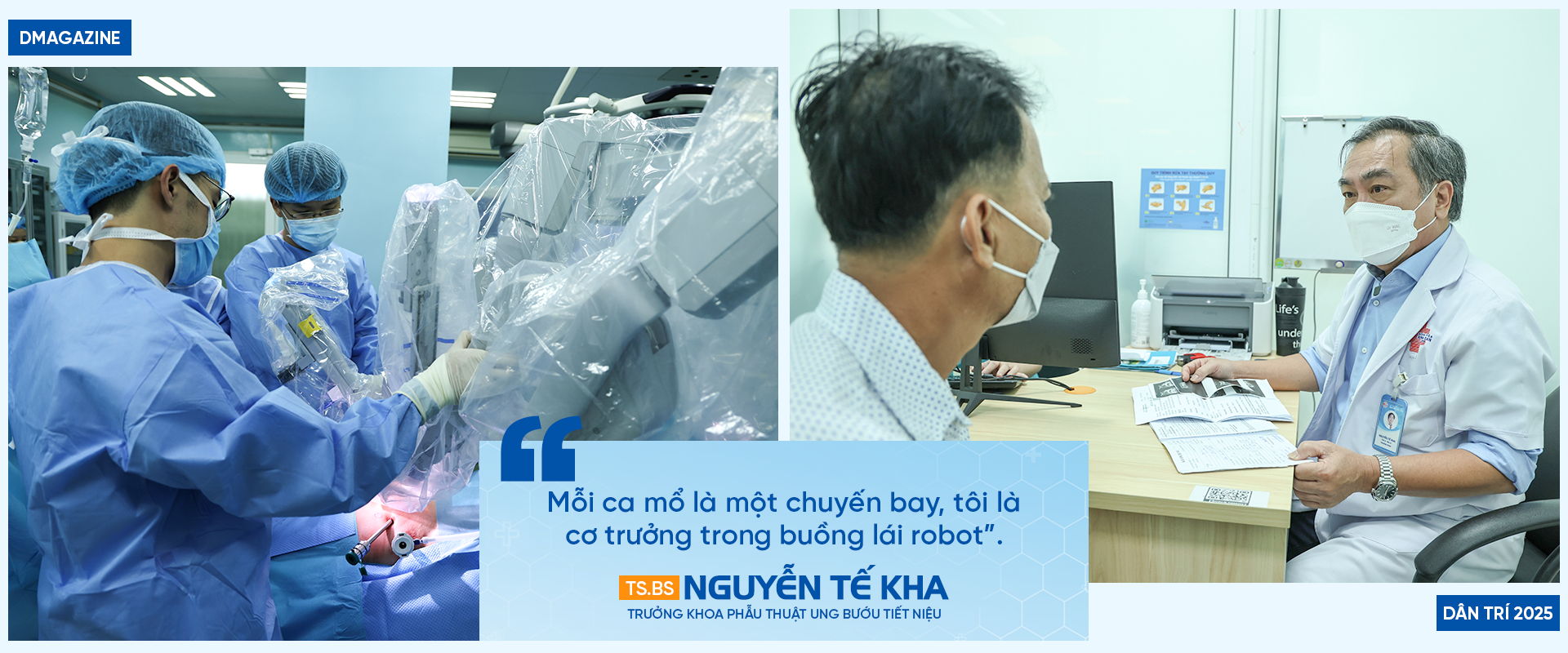

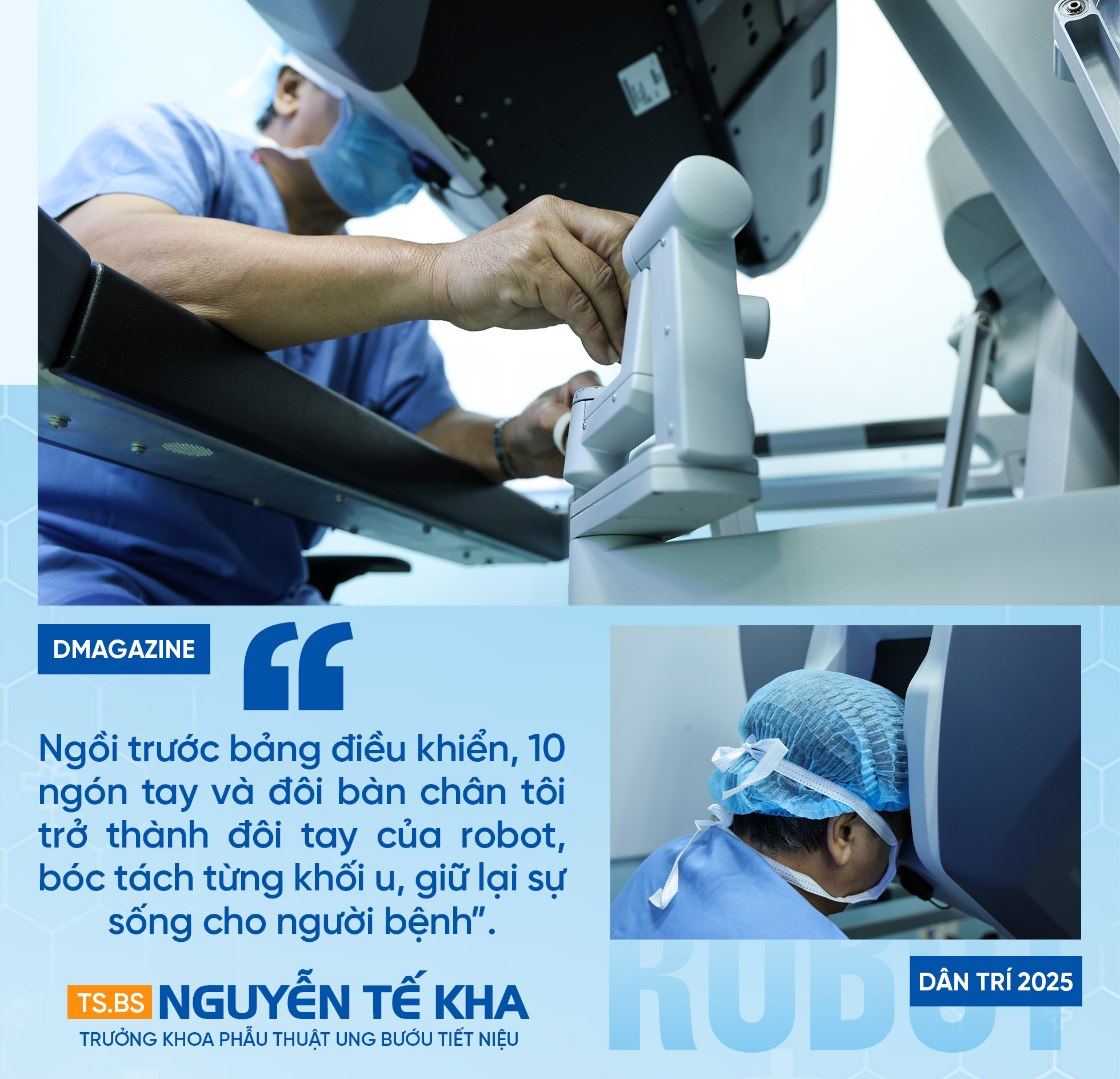
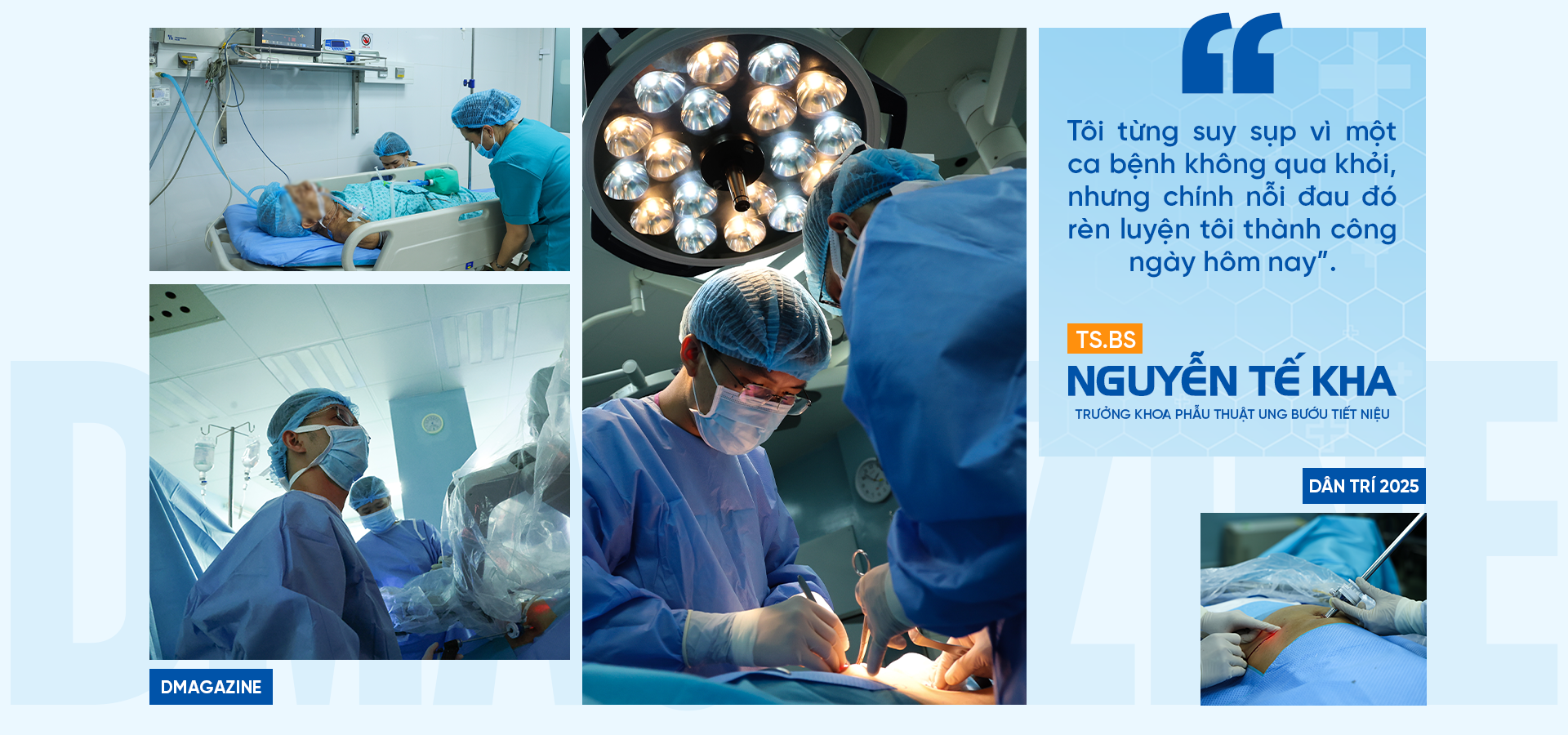
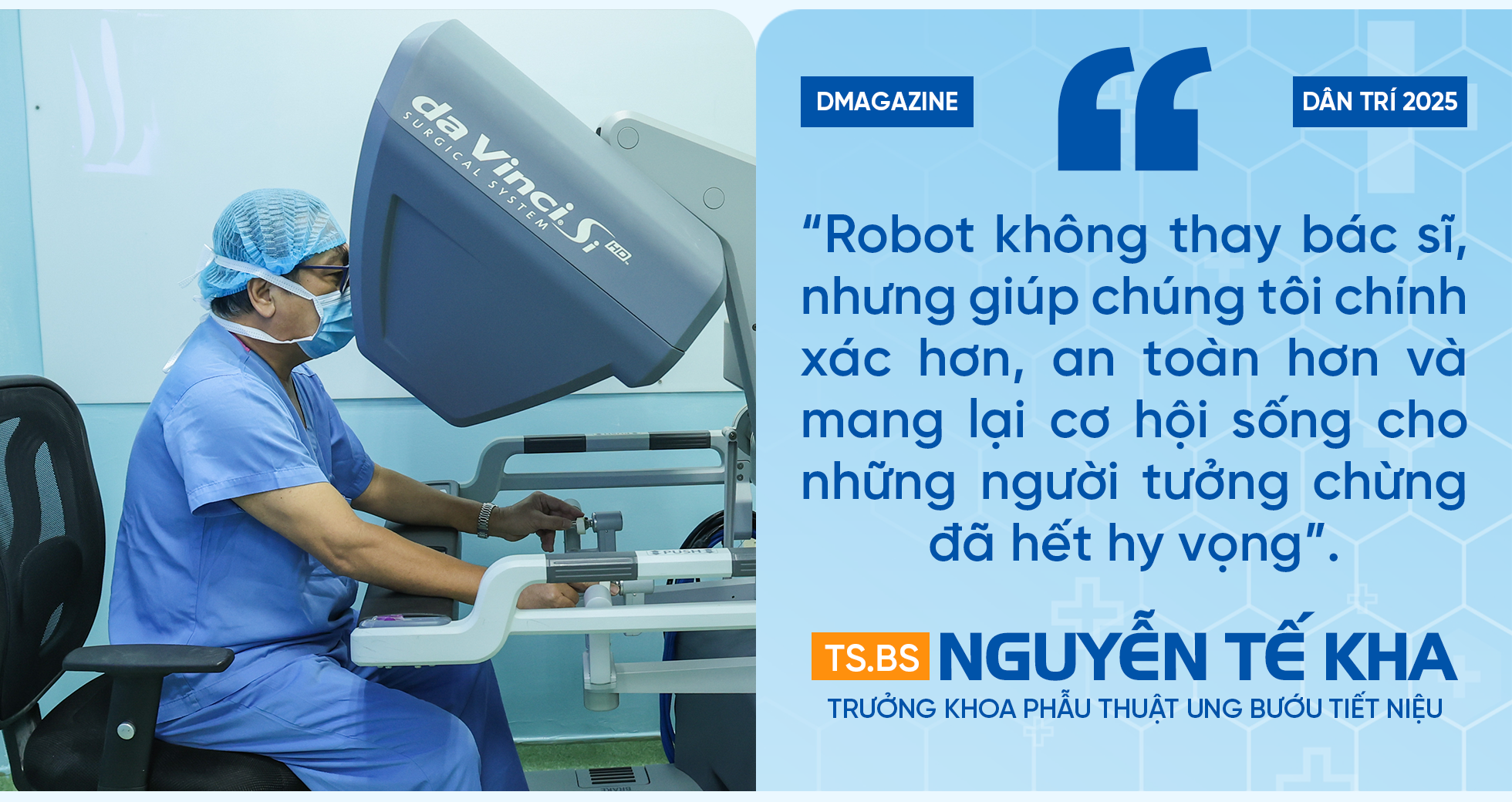

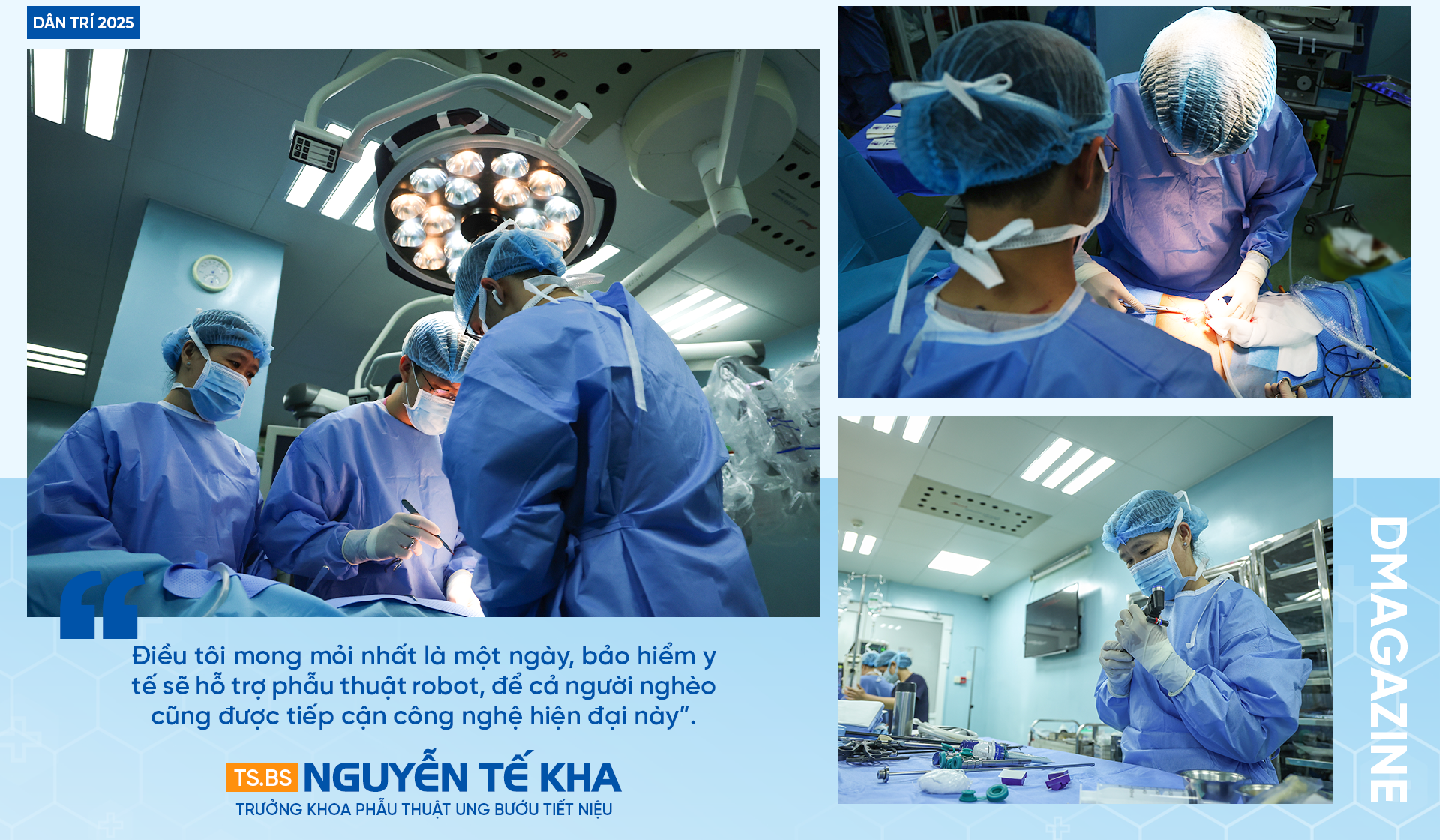
![[Photo] Prime Minister Pham Minh Chinh chairs the Government's online conference with localities](https://vphoto.vietnam.vn/thumb/1200x675/vietnam/resource/IMAGE/2025/10/5/264793cfb4404c63a701d235ff43e1bd)


![[Photo] Prime Minister Pham Minh Chinh launched a peak emulation campaign to achieve achievements in celebration of the 14th National Party Congress](https://vphoto.vietnam.vn/thumb/1200x675/vietnam/resource/IMAGE/2025/10/5/8869ec5cdbc740f58fbf2ae73f065076)


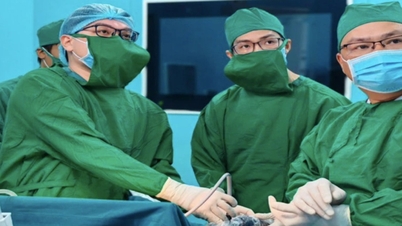






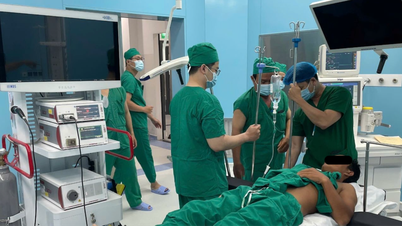




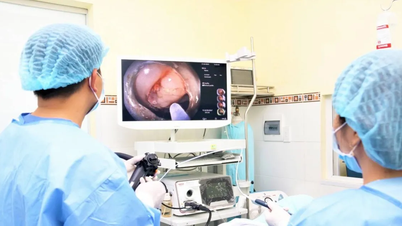
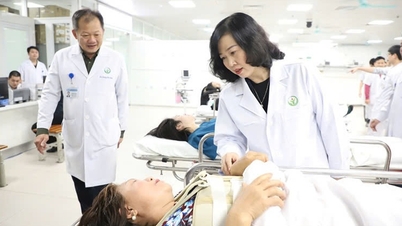
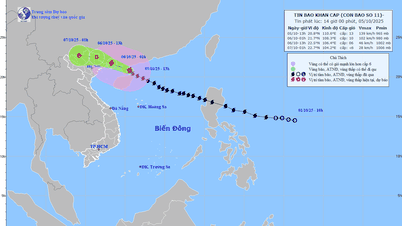







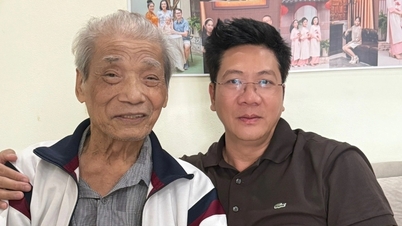

























![[VIDEO] Summary of Petrovietnam's 50th Anniversary Ceremony](https://vphoto.vietnam.vn/thumb/402x226/vietnam/resource/IMAGE/2025/10/4/abe133bdb8114793a16d4fe3e5bd0f12)

![[VIDEO] GENERAL SECRETARY TO LAM AWARDS PETROVIETNAM 8 GOLDEN WORDS: "PIONEER - EXCELLENT - SUSTAINABLE - GLOBAL"](https://vphoto.vietnam.vn/thumb/402x226/vietnam/resource/IMAGE/2025/7/23/c2fdb48863e846cfa9fb8e6ea9cf44e7)



















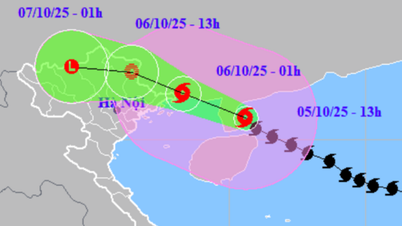



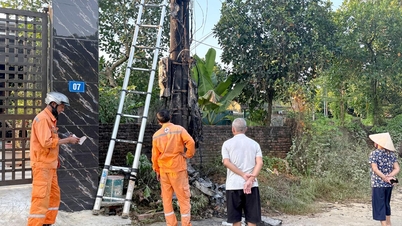














Comment (0)